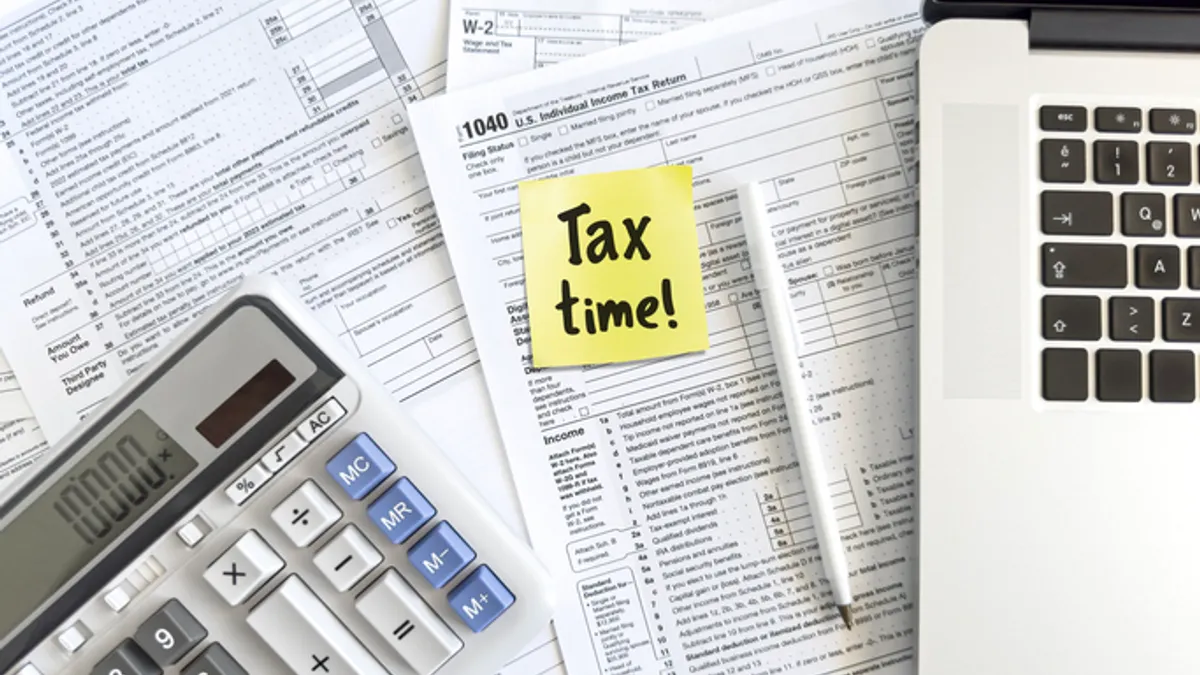A 30-year veteran of the real estate industry, Stacy Brown is director of technical training for Dallas-based single-family rental residence management franchise Real Property Management. Opinions are the author’s own.
As tax season is upon us, investors of rental properties are scrambling to maximize their deductions while staying compliant with federal and state regulations.
The complexity of tax laws can be overwhelming, leading many investors to overlook legitimate deductions or claim ineligible expenses that might trigger an audit.
Understanding the nuances of tax write-offs is essential for any investor aiming to optimize their bottom line. The key is knowing what you can and can’t deduct, and the IRS has clear rules that separate allowable expenses from those that don’t qualify.

The types of deductions available can vary based on the size and scope of the rental property. Large multifamily communities have different operational expenses than smaller properties, which can impact available deductions.
The following deductions apply to large multifamily communities of 80 or more units:
- On-site staff wages: Salaries for on-site property managers, leasing agents, maintenance staff and security personnel are fully deductible.
- Common area maintenance costs: Expenses related to maintaining shared spaces such as lobbies, pools, fitness centers, elevators and parking structures, can be deducted.
- Marketing and advertising: Larger properties typically invest more in digital marketing, signage and event hosting, all of which are deductible expenses.
- Security systems and monitoring services: The costs associated with surveillance cameras, security personnel and access control systems are deductible business expenses.
- Legal and compliance costs: Expenses related to fair housing training, legal consultations and compliance with local regulations can be deducted.
These deductions apply to small multifamily communities of six to 80 units and to single-family rentals:
- Third-party property management fees: Investors who hire property management companies to handle leasing, rent collection and maintenance can deduct these costs.
- Landscaping and exterior maintenance: Expenses related to lawn care, snow removal and exterior upkeep can be written off.
- Resident turnover costs: Cleaning, minor repairs and repainting between renters are deductible as regular maintenance expenses.
- HOA or CIC fees: If the property is in a Common Interest Community, homeowners association fees may be deducted as an operating expense.
- Home office deduction: Investors who self-manage their properties may qualify for a home office deduction if they use a dedicated space to manage their rental business.
These distinctions help investors maximize deductions based on the unique operational needs of their rental properties.
Available to all
Some deductions are available to all types of multifamily investors. They include:
Mortgage interest
One of the most significant deductions available to investors is mortgage interest. If you have a loan on your rental property, the interest portion of your payments is fully deductible. However, this only applies to the interest, not the principal, which goes toward building your equity in the property.
Property depreciation
The IRS allows investors to deduct depreciation to account for wear and tear on their property over time. Residential rental properties can be depreciated over 27.5 years, providing a steady annual deduction. This is a non-cash deduction, meaning it can reduce taxable income without requiring an out-of-pocket expense.
Repairs and maintenance
Routine repairs and maintenance costs are fully deductible in the year incurred. This includes fixing leaky faucets, painting walls, repairing HVAC systems and other general upkeep necessary to keep the rental property habitable. However, the IRS differentiates between repairs and capital improvements, which can significantly impact deductibility.
Property management fees
These fees are fully deductible if an investor hires a property management company to handle daily operations, including leasing, rent collection and maintenance coordination. This helps offset the cost of professional services that ensure a property runs smoothly.
Insurance premiums
All types of insurance related to the rental property, including hazard, liability and flood insurance are deductible. If the investor has an umbrella policy that includes coverage for multiple properties, they can deduct the portion that applies to the rental.
Utility and CIC fees
These expenses can be deducted if an investor covers utility costs for their rental properties, such as water, electricity or gas. The same applies to CIC fees if the property is in a community with such requirements.
Legal and professional fees
Legal expenses incurred for rental activities, including lease drafting, evictions and general legal consultations are tax-deductible. Additionally, fees paid to accountants, tax advisors or consultants who assist with managing the financial aspects of the investment are deductible.
Travel and transportation costs
Travel expenses may be deducted if an investor travels to and from rental properties for business purposes, such as meeting with residents, performing inspections or coordinating with contractors. This includes mileage for local trips and airfare for out-of-state rental properties.
Avoid deduction snafus
While claiming all appropriate deductions is an important part of handling taxes, it’s equally as crucial to avoid deductions that are not allowed. Here are some of the most common ones:
Capital improvements
While routine repairs are deductible, capital improvements that add value to a property must be depreciated over time. These include major renovations like adding a new roof, remodeling kitchens, installing new flooring or upgrading plumbing and electrical systems. Investors should work with a tax professional to determine proper depreciation schedules for these expenses.
Personal use
Investors must be cautious about claiming deductions if they use their rental property for personal use, even part-time. Expenses related to personal use days are not deductible, and investors must prorate costs accordingly if they use the property for rental and personal purposes.
Losses from vacancies
Although vacancies are unfortunate for investors, the IRS does not allow deductions for lost rental income due to unoccupied units. However, expenses incurred during the vacancy, such as utilities and maintenance, may still be deductible. This loss in revenue may be an insurable risk; check with your insurance broker for more information.
Fines and penalties
Any fines or penalties paid to the government or regulatory agencies, such as code violations, late tax payments or CIC infractions are not deductible. The IRS considers these to be punitive and not legitimate business expenses.
Commuting costs
Investors who travel to their rental properties from their primary residences cannot deduct commuting costs. However, property management or business-related travel, such as meeting contractors or showing the unit to potential residents, may still qualify.
Best practices
Due to the complexities of this topic, investment property owners must have a strategy for maximizing their deductions. Here are some best practices:
- Keep meticulous records: Maintaining detailed records of expenses, including receipts and invoices, can substantiate deductions and prevent issues with the IRS.
- Separate business and personal finances: To avoid mingling funds, investors should maintain separate bank accounts for rental income and expenses.
- Work with a tax professional: A knowledgeable CPA or tax advisor can help identify all possible deductions and ensure compliance with IRS regulations.
- Leverage technology: While property management software can streamline tracking income and expenses, making tax preparation more efficient, it is usually reserved for professional property management companies.
In conclusion, understanding the rules around deductions is critical for investors looking to maximize their rental property profitability. By leveraging legitimate tax write-offs and avoiding non-deductible expenses, investors can reduce taxable income and reinvest savings into their portfolios. Tax laws can be complex, but with the right strategy, investors can navigate deductions with confidence, ensuring compliance while optimizing their financial position.
Editor’s note: This article is for informational purposes only and should not be considered tax advice. Investors should consult a qualified tax professional to ensure compliance with IRS regulations.


















